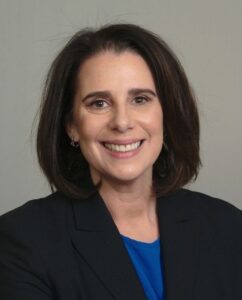 2 min read January 2022 — Online learning is here to stay and students like the flexibility that it provides. However, according to Diane Recinos, interim president of Berkeley College, the future of education will be determined by the students themselves as they are going to dictate the demand, and education institutions need to listen, she told Invest:.
2 min read January 2022 — Online learning is here to stay and students like the flexibility that it provides. However, according to Diane Recinos, interim president of Berkeley College, the future of education will be determined by the students themselves as they are going to dictate the demand, and education institutions need to listen, she told Invest:.
How did you manage your operations in a remote-learning setting during the past year?
We’ve been providing online education for over 20 years. When the need arose early in the pandemic to go virtual, we found ourselves in a situation of having a very strong foundation of virtual and remote learning. Our employees were technologically strong in supporting not only our online students but also our on-site students transition to virtual learning. When we went 100% remote and virtual, we were able to administer a significant amount of programming across different departments.
Berkeley College positioned itself to continue to support students. These remote teaching and learning opportunities allow us to highlight the good work of our faculty and engage students in unique ways. We will continue to maximize the strengths of distance learning moving forward.
Do you see challenges in attracting the traditional high-school population to your institution?
Berkeley has been a more nontraditional college. We are unique in that way. We are career-focused and we have seen a continual shift to nontraditional students. Just to give you an idea, 51% of our students are between the ages of 23 and 39, so only about a third of our students are 22 and under. As such, we already support a large nontraditional student population. We are also focused on providing a level of engagement and outreach to the more traditional student who might be interested. To that end, we transitioned to offering virtual high-school open houses on a consistent basis to continue to introduce the Berkeley College experience to high school students and their families..
Do you think on-site education is coming back in the same way?
Early in the pandemic Berkeley College surveyed students to make sure they had the technical resources and support needed to transition to a remote environment. We are finding that students appreciate the convenience and flexibility of remote learning. The students are going to dictate the demand. As a result of the COVID-19 pandemic, colleges and universities will need to continually assess and evaluate the teaching and learning modalities and program offerings that work best for their students, whether on-site, online, or hybrid.
What is your process for determining the programs you offer?
Berkeley College collaborates with industries for feedback through advisory boards. This helps ensure that our curriculum is fresh, current and relevant to the workplace. The feedback from advisory boards helps develop new program concentrations. Examples include business analytics and artificial intelligence that are becoming more and more relevant to the workplace.
How do you see the future of higher education?
Online learning is here to stay. The future of higher education is in preparing students for an evolving remote and digital workforce. We will see a nationwide emphasis on technology, such as affordable broadband access to enable remote access and student success at all levels of education. Partnerships between higher education, industry and government will bridge the technology gaps in education so that the necessary structures, safety nets and supports are in place. These partnerships will also fortify workforce development.
What do you think is the role of higher education regarding the workforce challenges of today?
Higher education is the solution to preparing and retaining a skilled workforce. A study by Prudential Financial found that 26% of workers plan to switch jobs post-COVID, with 72% of these employees rethinking their skill set. Employers must accept the worker mindset of flexibility and career mobility. Companies that partner with colleges and universities will have a higher success rate at reskilling, retaining and growing an adaptable and loyal workforce in a cost-effective way.
What is your outlook not just for Berkeley but the higher education sector for the next three to four years?
Moving forward, more students will expect to advance their education in an online environment. Ongoing evaluation of student needs, program offerings, technology, and workforce demands will continue to drive innovative approaches to addressing the dynamics of an evolving economy post-pandemic. Technology is going to play a primary role in all aspects of education and work. Staying ahead of the next innovation curve will be important.
For more information, visit:
